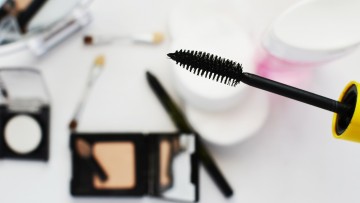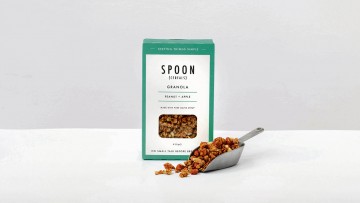The very name suggests wholesomeness. But, in the United States at least, even Whole Foods Market has over recent years been targeted in more than one class-action lawsuit alleging that products it labels as “all natural” are misbranded because they contain artificial ingredients, flavourings, colouring and chemical preservatives.
Nor is Whole Foods Market alone. Quaker Oats was this year also hit with a class action in the US alleging that its “100 per cent natural” claims were deceptive, since in some products its oatmeal contained traces of the pesticide glyphosate.
It’s tempting to feel sorry for them. After all, packaged foods are hugely complex products, not just in their ingredients, but in their manufacture, treatment and packaging. Stevia, for example, is a plant-derived sweetener. And yet it is processed like regular sugar. How then should it be read by the consumer? Coconut oil sounds eminently uncontaminated, and yet has to be refined, bleached and deodorised.
Indeed, for a product to claim that it is “organic” or “natural” is to increasingly open itself to close analysis by consumers and all the more so since these terms tend to be conflated with “safe” or “healthy” when it ain’t necessarily so.
Small wonder Leatherhead Food Research, an independent organisation, says overused terms such as “natural” are simply confusing consumers, with manufacturers’ tenuous claims only muddying the waters further. Then there’s a paradox, they say: consumers are asking for “healthy”, without knowing what they’re actually asking for.
Certification
At least in the UK there is some regulation. For a food product to claim that it is organic, it must comply with EU laws overseeing organic production and labelling, with certification bodies, the likes of the Soil Association or the Organic Trust, approved by the Department for Environment, Food and Rural Affairs.
“The certification process is very rigorous, so brands that pass tend to go out and promote the fact,” says Laura Bartley, the Soil Association’s business development manager. “The fact is that few people are really inclined to read the ingredients labelling, let alone investigate a product further. Maybe other brands are generally organic, but are put in the same category as those that ‘greenwash’ [make out they’re green when they’re not].”

A cosmetic company can say it’s ‘organic’ or ‘natural’ and doesn’t have to be either
Certainly such certification processes are not cheap, which is why many small startups, often the ones challenging the brand giants with a genuinely progressive product, can’t or don’t bother to seek it.
But even with the Soil Association’s exacting certification, a product need only be 95 per cent organic, giving the lie perhaps to the idea of the utterly organic product. And while regulation applies to foodstuffs, there is no legal regulation of claims made for health and beauty products or textiles.
It can make you feel silly to have bought into brands you’ve assumed are what they say they are
“So a cosmetic company can say it’s ‘organic’ or ‘natural’ and doesn’t have to be either,” says Ms Bartley, who is leading the launch of an Organic Beauty Week educational online campaign in September. “It’s simply not been on anyone’s agenda to get this situation changed unfortunately.”
More positively, more manufacturers in this sector are looking to some form of publicly recognised certification. There has been a 21 per cent spike in applications to the Soil Association since last year, with the organisation also running a certification process for textiles.
But Ms Bartley says greenwashing, while a massive risk for any brand, is only likely to increase too. She will not name names, but says she has been shocked by some instances. “It can make you feel silly to have bought into brands you’ve assumed are what they say they are,” she notes of her own experience.
Manipulation
In the US, 98 per cent of “natural” products are making false or misleading claims, according to a study by environmental consulting firm TerraChoice, with the wellness phenomenon and millennials’ health-consciousness only encouraging manufacturers to jump on a lucrative bandwagon.
Fudging the truth is all too easy, claiming “greenness” based on only a narrow set of attributes, offering no independent proof for claims, using valueless in-house certification, claiming adherence to irrelevant environmental regulation and, perhaps above all, just being vague to the point of meaningless.
But then the problem is equally about a lack of agreement over what the terms actually mean, where lines should be drawn and what perceived truths underpin our understanding. Demands, for example, are constantly shifting.

Granola company ‘Spoon’ plans to launch an organic line next year
“We’ve rarely had questions about whether we’re organic or not,” says Annie Morris, co-founder of granola company Spoon, which nevertheless plans to launch an organic line next year. “Right now people are more concerned about if you’re gluten free. We spend a lot of time explaining to people that, unless you suffer from coeliac disease, gluten is actually good for you. It’s just trendy to be ‘gluten free’.”
Our understanding is questionable too. Certainly the whole sector is replete with myths; those “dreadful” E numbers, for example. Not all of them are artificial and some are what you might even call “organic” or “natural”.
The response of German beauty brand Dr. Grandel is a case in point. By most measures its products could be described as “natural”. And yet because it uses widely misunderstood bio-tech to develop them, the company studiously avoids using the word.
“We speak of ‘optimised nature’, not nature in the sense of being purely from nature, but nature-based,” as Dr Marie-Louise Jung, the company’s head of marketing, puts it. Besides, she notes, as any scientist will tell you, “nature” and “natural” are widely abused terms in current parlance giving an entirely positive gloss when, in fact, not all things natural are necessarily good.
Certification

Manipulation

